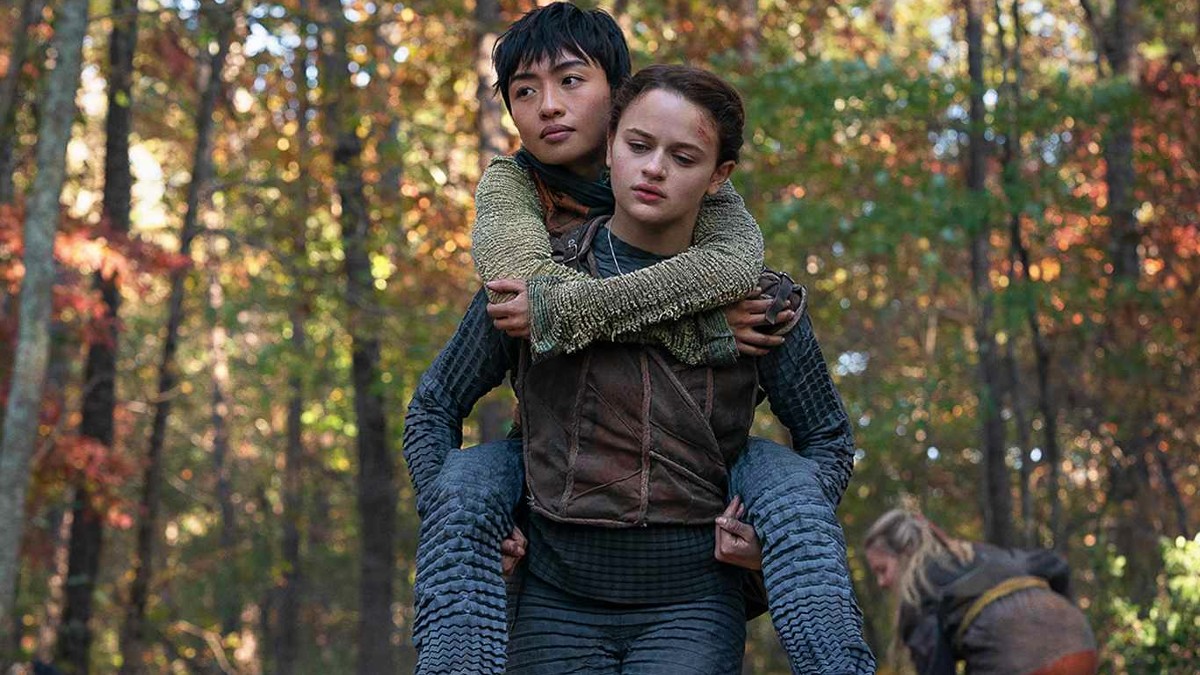‘It’s never enough’: ‘Uglies’ director explains how a common criticism completely missed the point

Uglies director Joseph McGinty Nichol, who goes by McG professionally, had to explain why he cast “beautiful” actors in the movie to people who missed the point of the premise.
Based on the book of the same name by Scott Westerfeld, Uglies takes place in a dystopian society where everyone is forced to undergo a procedure at age 16 to make them aesthetically “perfect.” Before they have the procedure, people are referred to as “Uglies” and largely ignored by society. However, once they have the procedure, they become “Pretties” and are permitted to live luxuriously in the City.
Uglies follows Tally Youngblood (Joey King), a fifteen-year-old who is highly anticipating her upcoming procedure. Her life changes when she meets Shay (Brianne Tju), a fellow teenager who has decided to join a group that lives in hiding outside the City and refuses to submit to the procedure.
The movie received mostly negative reviews, as many viewers criticized its blandness and inability to take its message about beauty standards deeper. Amid the discussion, though, a rather silly critique of Uglies arose. Even though beauty is subjective, some viewers apparently expected the “Uglies” to actually be unattractive. Users shared images of the actors on social media and expressed confusion over why they were cast as Uglies despite being conventionally attractive.
Given the discourse, McG explained that he intentionally chose “beautiful” actors to portray the Uglies.
No, the Uglies aren’t actually supposed to be “ugly”
In an interview with The Wrap, McG admitted he purposefully picked actors he thought were beautiful in order to drive home the actual point of Uglies. The movie illustrates how beauty standards are impossible to reach, as they always demand some kind of modification to the reality of the human body, no matter how well someone meets societal standards. There will always be nitpicks to label someone’s features “imperfect.”
Often, being beautiful isn’t “enough” for society. He stated, “That’s precisely why we did it; it’s because we’re saying it’s never enough. And Joey King, beautiful. Brianne Tju, Chase, Keith [Powers], Laverne [Cox], you can’t get much more beautiful. And we’re saying that’s not the point. There’s always somebody or something there to nitpick.”
In Uglies, people like Dr. Cable (Laverne Cox) attained their power by exploiting people’s insecurities, not their looks. Everyone in society is forced to complete the procedure, even though it’s not possible that everyone in society is “ugly.” Hence, Dr. Cable’s power relies on convincing even the most beautiful people that they are imperfect.
McG explained that it is meant to reflect society’s toxic way of thinking and inclination to point out the flaws in someone instead of their beauty. Regardless of their looks, no one is safe from toxicity and criticism. He told The Wrap:
I think, if you spoke to some of the most universally regarded beautiful people in the world, they’re some of the people with the most intense body dysmorphia. Nobody’s immune from this toxicity that’s out there of ‘It’s never enough. You can always have a thinner waist, bigger hips, fuller lips.’ Take your pick. You see it out there every day, and this movie is meant to be the antidote to that way of thinking.
According to McG, it actually makes more sense that the main characters are beautiful because it is often the most beautiful people who harbor the most insecurities. The main characters weren’t insecure because they were ugly but because they were raised in a society that forced them to make being beautiful their entire personality.
When people are conditioned to think their beauty is the only thing that makes them valuable, they become more preoccupied with their appearance and are willing to go to greater lengths to maintain or elevate their beauty. The “Uglies” in Uglies were never ugly; they were just victims of a society with impossible beauty standards that exploited their insecurities—much like the real world.
Have a tip we should know? [email protected]